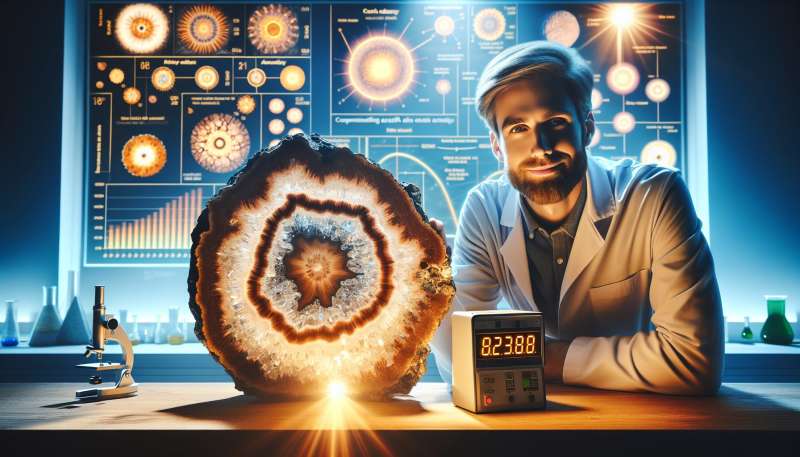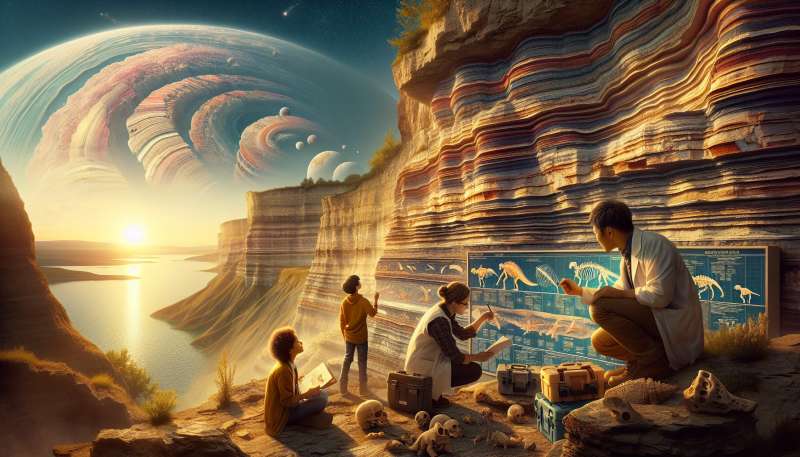
Age of Earth
Contrary to the 2600-year claim, scientific consensus determines the Earth to be approximately 4.54 billion years old, based on radiometric age dating of meteorite material and Earth rocks.
Radiometric Dating Explained
Radiometric dating measures the decay of radioactive isotopes to determine the age of rocks. The stable decay rates make it a reliable clock for dating Earth's geological history.
Oldest Earth Minerals
The oldest minerals on Earth, zircons from Australia, are about 4.4 billion years old. This insight extends Earth's history well beyond the 2600-year mark.
Geologic Time Scale
The geologic time scale divides Earth's history into eons, eras, periods, epochs, and ages. This chronology is incompatible with an Earth that is only 2600 years old.
Historical Context
The belief in a young Earth may stem from religious or mythological timelines. However, human civilization itself is documented to extend back more than 2600 years.
Dinosaurs and Extinction
Dinosaurs roamed Earth roughly 230 million years ago, with an extinction event 65 million years ago, predating the 2600-year claim by vast geological epochs.
Scientific Consensus
Despite alternative beliefs, overwhelming geological, biological, and astronomical evidence supports a multi-billion-year-old Earth, fostering our understanding of the planet's complex history.Life's Early Start
Microbial life existed on Earth 3.5 billion years ago, thriving even with harsh early conditions, showcasing life's resilience.
How old is Earth?
4.54 billion years
2600 years
230 million years
Company